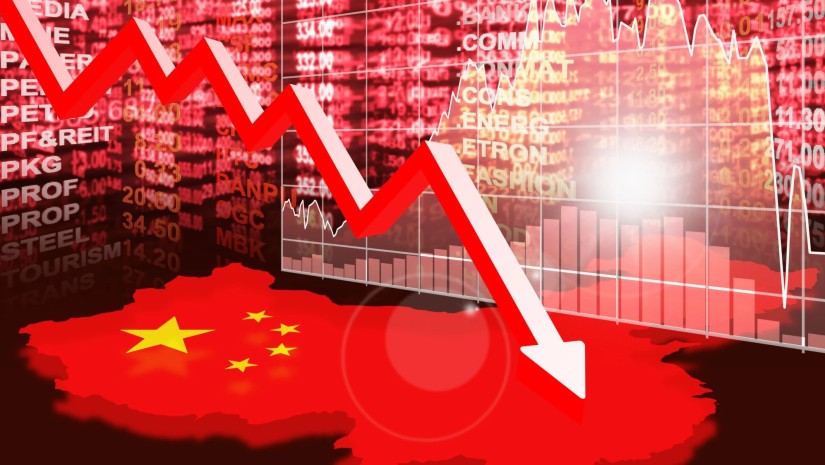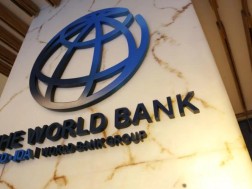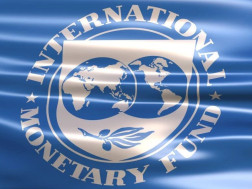The World Bank has cut its growth forecast for China into next year, as Asia's largest economy struggles with a brewing property crisis that threatens to harm prospects for its economy, dragging down regional countries along the way.
China's gross domestic product growth is now pegged at 4.4% for 2024, down from the 4.8% figure the institution forecast in April.
For developing economies in East Asia and Pacific, which as well as China include countries like Cambodia, Indonesia, Malaysia, the Philippines, Thailand and Vietnam, growth is now expected at 4.5% for 2024, down from 4.8% a few months ago.
These figures were carried in a World Bank report released on Monday, warning that a "growth shock" coming from the region's largest trading partners -- China and the U.S. -- would impact Asian economies through bilateral trade and financial flows.
"China has become a really important market for the region," the bank's East Asia and Pacific Chief Economist Aaditya Mattoo told Nikkei Asia. "What happens in China really matters for economic activity in the rest of the region... links such as trade and services, Chinese tourists, and so on."
A 4.4% expansion in 2024 would mean that China's growth would not be as strong as it was before the pandemic. Official statistics show the Chinese economy grew around 6% to 7% annually in the late 2010s before slowing to 2.2% in 2020 due to the pandemic. The growth rebounded to 8.4% in 2021 but slowed again to 3% in 2022 as the government's strict zero-COVID policy damaged business activities. For this year, the World Bank projects a 5.1% expansion for the country.
The World Bank's report noted that a 1% reduction in China's growth is associated with a cut in regional expansion by 0.3 percentage points.
"China's past growth, largely driven by investment in infrastructure and property, has left firms and local governments burdened by debt -- as saturated infrastructure yields diminishing returns and an oversupply of housing reduces property prices," the report noted.
The world's second-largest economy after the U.S. has of late been pressured by troubles from beleaguered property developers.
Once the largest developer in the country, for instance, China Evergrande Group is struggling under heavy debts accumulated over a number of years, while a sales slump has hit its cash position following a government crackdown on the sector.
Mattoo noted that estimates on the real estate sector's contribution to China's GDP range from a quarter to a third, including surrounding industries that prop up the property space.
"The share of the sector in the economy has become very large," he said. "We see difficulties across the board because house prices unfortunately -- in these largest cities seem to be recovering, but the second-tier cities are still in difficulty."
The World Bank tipped growth in developing East Asia and Pacific to remain strong at 5% in 2023, overall, but that the momentum will ease in the second half of this year. Despite China's troubles, the institution sees bright spots in Southeast Asia, with global inflation expected to ease.
In the region, it noted that the combination of services reform and digitalization is creating new opportunities, with the "diffusion of digital technologies" set to improve economic performance.
The World Bank highlighted that in the Philippines, the adoption of software and data analytics by firms increased the productivity of companies by 1.5% on average over much of the previous decade, while in Vietnam, the reduction in policy barriers such as restrictions on foreign entry and ownership in sectors like transport, finance, and business services have led to increases in labor productivity.
Still, Mattoo noted that risks remain. "Across countries, across households, corporates, debt is much higher than it was," he said. "That is going to be still a burden; on households -- so they will spend less, on firms -- they will invest less, on governments -- that will also limit the fiscal space they have to support activity in the economy," Nikkei Asia reports.























